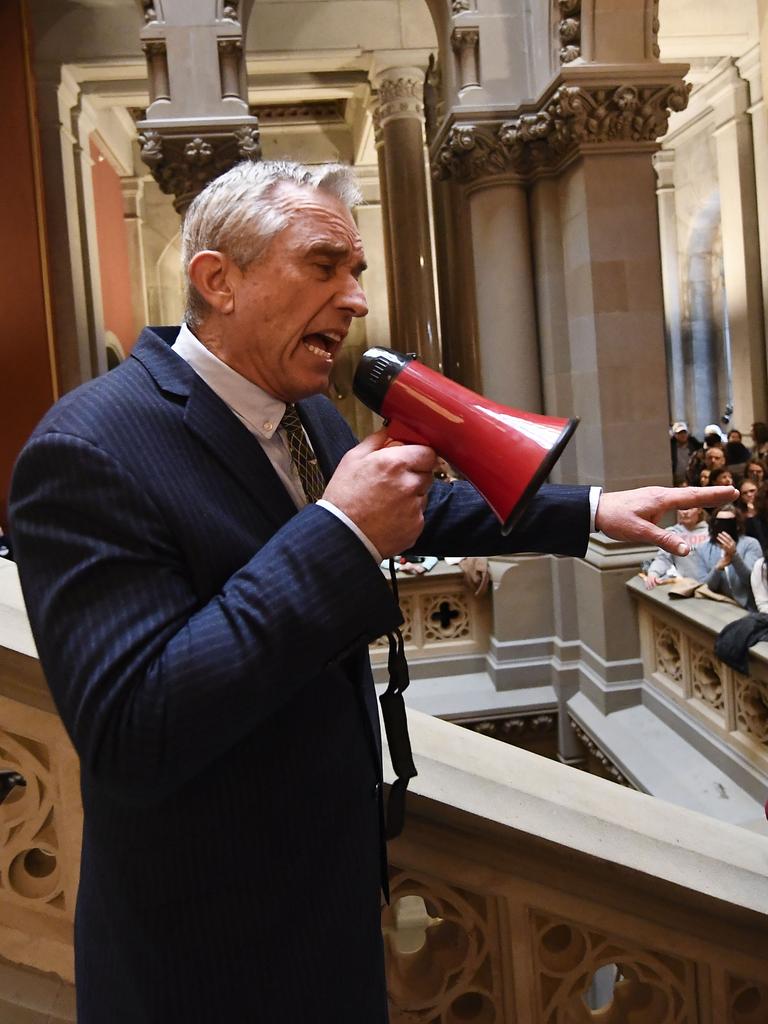In recent weeks, the topic of vaccinations has once again come to the forefront of public discourse due to a measles outbreak in Texas. The situation has been further complicated by controversial statements from prominent figures, including Robert F. Kennedy Jr., who has drawn criticism for his stance on vaccines and his praise for a doctor infected with measles. This article delves into the implications of these events and explores the broader debate surrounding vaccine hesitancy and its impact on public health.
As the measles outbreak continues to spread, questions arise about the responsibility of healthcare professionals and public figures in addressing such crises. The involvement of Dr. Ben Edwards, a Texas-based physician who continued treating patients despite being infected with measles, has sparked intense debate. Furthermore, RFK Jr.'s endorsement of Dr. Edwards adds another layer of complexity to an already contentious issue, raising concerns about misinformation and its potential consequences on community health.
Controversial Praise Amidst Public Health Crisis
The decision by Dr. Ben Edwards to treat children while visibly suffering from a measles rash has drawn significant attention and criticism from the medical community. Despite clear guidelines discouraging infected individuals from interacting with others, particularly in vulnerable populations like children, Edwards chose to continue working. His actions have been scrutinized not only for their potential to exacerbate the outbreak but also for setting a dangerous precedent for other healthcare providers.
RFK Jr.'s subsequent praise of Dr. Edwards as an extraordinary healer has ignited further controversy. Critics argue that such endorsements undermine efforts to promote vaccination and control the spread of infectious diseases. In a time when misinformation can quickly gain traction, Kennedy's comments may inadvertently contribute to growing vaccine hesitancy among parents and caregivers.
Public health experts emphasize the importance of adhering to established protocols during outbreaks. By highlighting the risks associated with exposing unvaccinated or partially vaccinated individuals to measles, they aim to reinforce the necessity of responsible behavior from both medical practitioners and influential voices alike.
Challenging Norms: A Risky Gamble?
Dr. Edwards' approach to managing the measles outbreak contrasts sharply with conventional medical practices. Advocates of his methods suggest that natural infection might provide immunity similar to vaccination, echoing sentiments expressed by some anti-vaxxers. However, this perspective overlooks the severe complications that can arise from measles infections, especially in young children and immunocompromised individuals.
By characterizing mass infection as God's version of measles immunization, Dr. Edwards challenges widely accepted scientific principles regarding disease prevention. Such rhetoric could mislead parents into believing that avoiding vaccines is a safer alternative, thereby increasing the likelihood of future outbreaks. Medical professionals warn against adopting such views without considering the broader implications for community health.
In contrast, proponents of vaccination stress the overwhelming evidence supporting its efficacy and safety. They argue that preventing illness through vaccination not only protects individual patients but also contributes to herd immunity, safeguarding those unable to receive vaccines due to age or medical conditions.
A Divisive Endorsement: Impact on Vaccine Hesitancy
RFK Jr.'s association with anti-vaxxer ideologies has long been a point of contention within public health circles. His latest endorsement of Dr. Edwards serves as yet another example of how influential figures can shape public perception around critical health issues. While Kennedy contends that vaccines pose unnecessary risks, numerous studies consistently demonstrate their benefits far outweigh any potential side effects.
Concerns about rising vaccine hesitancy are well-founded, given the resurgence of preventable diseases like measles in regions where coverage rates have declined. Experts worry that high-profile figures promoting unfounded skepticism could erode trust in immunization programs at a time when global cooperation is essential to combatting emerging health threats.
To mitigate these risks, it is crucial for credible sources—such as government agencies, healthcare organizations, and respected leaders—to actively counter misinformation and advocate for evidence-based practices. Through transparent communication and education initiatives, communities can better understand the importance of vaccines in protecting both personal and collective health.

